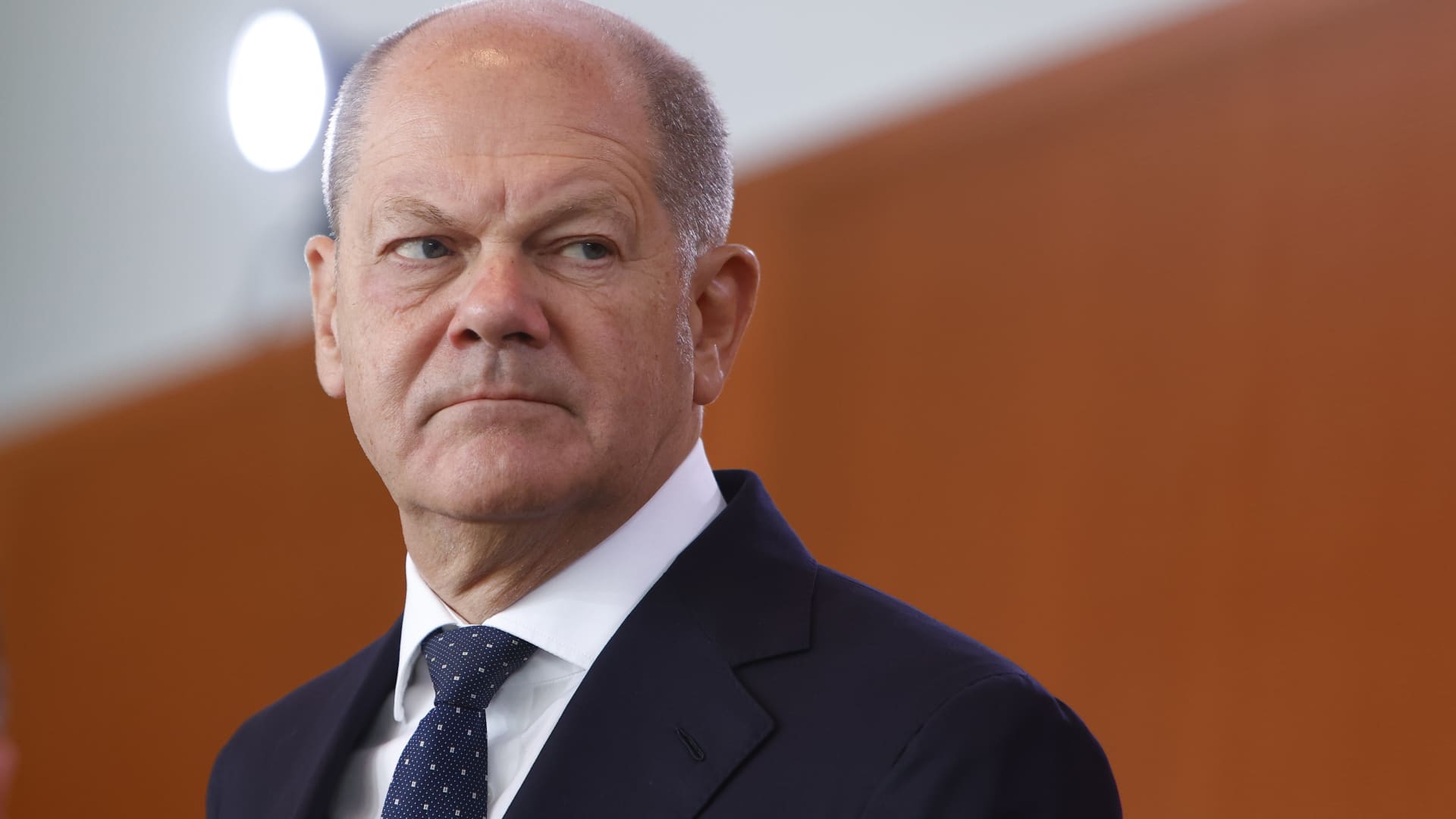German Chancellor, Olaf Scholz arrives for the weekly federal government cabinet meeting on Oct. 11, 2023 in Berlin, Germany.
Michele Tantussi | Getty Images News | Getty Images
MUNICH, Germany â German Chancellor Olaf Scholz on Saturday reaffirmed Berlin’s commitment to spend 2% of the national gross domestic product (GDP) on defense, this year and over the longer term.
“Germany will invest 2% of its GDP on defense in the 2020s, in the 2030s and beyond,” Scholz told the Munich Security Conference.
Germany has this commitment in 2024 through regular and special budget outlays for the first time since the early 1990s, a defense ministry spokesperson said on Wednesday, according to Reuters.
“We Europeans must take much more care of our own security, now and in the future,” Scholz said.
It comes as NATO members across Europe have committed to upping their defense spending.
Eighteen of the US-led military alliance’s 31 members will meet the 2% spending target this year, NATO Secretary-General Jens Stoltenberg said on Wednesday.
“We are making real progress,” Stoltenberg said.â”European allies are spending more.”
The announcement came just days after former U.S. President Donald Trump said over the weekend that he would encourage Russia to do “whatever the hell they want” to NATO members that fail to meet their 2% spending target.
Germany announced a new 100 billion euro ($107 billion) debt-financed fund for the Bundeswehr â the German armed forces â to beef up its national security in 2022, days after Russia’s full-scale invasion of Ukraine.
Scholz at the time dubbed the move a “Zeitenwende” â or watershed moment â in Germany’s modern history, which would allow the country to meet its long-held 2% defense spending goals.
The country is expected to spend roughly 72 billion euros on defense this year, Â but concerns remain over what will happen after these funds run out in 2027.
Expert estimates suggest the government would need to find 25-30 billion euros per year to meet that goal, according to the Financial Times, likely leading to cuts in welfare spending. Germany is one of the few countries with a borrowing cap inscribed in its constitution.
This is a breaking news story. Please check back for updates.

